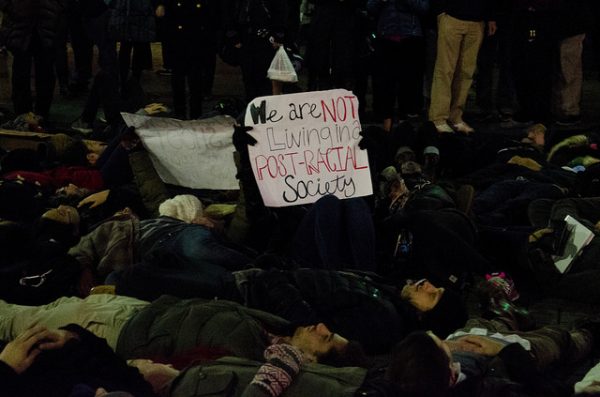
The concept of “colorblind racism” was first popularized by Eduardo Bonilla-Silva in his groundbreaking book Racism with Racists. He explains how people in the 21st century are quick to say they do not see race, or that we live in a post-racial society, in order to demonstrate that they themselves are not racist. While this might not seem like a bad thing at first glance, colorblind ideas often underplay the continued existence of racism and racial inequality. This often results in blaming racial minorities rather than thinking about how systems and institutions perpetuate racial and economic inequality.
Most research on the concept of colorblind racism has focused on conservatives and/or Republicans, but Meghan Burke tackles the bipartisan nature of colorblindness by focusing on “racial codes,” which are the colorblind ways in which Americans talk about racial issues without ever really discussing race. As Burke states, “racial codes allow these deeply racialized social issues to be discussed in seemingly race-neutral terms, thereby preserving colorblindness as an important moral stance” (291). In interviews with two groups — residents of a diverse, liberal neighborhood and members of a Tea Party organization in the Chicago area — Burke shows readers that both liberals and conservatives use colorblind language. In both groups, people are quick to say that racism is bad, that racism is over, and that they’re not racist, in order to construct an identity of a good, moral person.
One of the problems with this moral stance, according to Burke, is that it does not address the existence of racial inequality — if anything, colorblind ideologies work to ignore or hide such inequality. Burke found that both liberal and conservative participants talked about welfare, public housing, and street “hooligans” in ways which seemingly ignore race but do more than hint at the idea that local African-Americans are the problem. Burke’s research forces social scientists to reconsider previous understandings of race and racism in politics, drawing attention to how people across the political spectrum avoid discussing race, downplay the existence of racism, and see inequality as a result of individual issues.

Comments